US Police Brutality rampant in Louisiana
The US Department of Justice has opened a probe into the use of excessive force and racially discriminatory policing by the Louisiana State Police.
Three police officers have recently been accused of beating a black motorist during an arrest in 2020, another example from a long list of incidents involving police brutality in America.
The three white cops slapped and punched the man even after he had completely surrendered as recorded by the police body camera. The man sustained multiple bruises and lacerations around his face and head according to images released by his family after the arrest.
Let us take a look at police brutality in America and the investigation that has been launched, long after the deadly incident, in an effort to check the police department's policies, training and supervision, all of which appear to be spiraling out of control.
Another sweeping civil rights probe comes amid mounting evidence that the agency ignored beatings of mostly black men, including the deadly 2019 arrest of Ronald Green.
So far, at least a dozen cases have been leaked over the past decade in which police forces or their chiefs ignored or concealed evidence of beatings or other misconduct.
Any investigation is subject to the incessant infighting within the US administration, this time, over police brutality.
Mr. Green was to some degree, even though he just finished leading police officers on a lengthy and a high speed chase, his inclination at that particular point was to acquiesce to what the officers wanted.
Under no circumstances should Mr. Green have been dragged by his ankle shackle that was malicious, sadistic, and completely unnecessary.
Andrew Scott, Use of Force Expert
Police brutality, particularly against people of color has a long history, not just in the state of Louisiana, but the rest of the country as well.
Endemic racism among members of the US law enforcement agencies plays a crucial part in the use of excessive force applied against the marginalised people, such as Muslims, Asian Americans, Latinos, and above all African Americans.
Unfortunately, we have seen over and over again, for African Americans, that they're not afforded the same protection under the law as other citizens.
Lee Merritt, Civil Rights Attorney
Brutality is not just directed at crowds that protest over various issues, but also at individual perpetrators of minor crimes or just innocent victims falling prey to racist cops far from any crowd.
The latest incident in Louisiana is actually a case of the latter, shedding light on the significance and prevalence of such cases.
Why is police brutality so rampant in America and what can be done about it?
It has been years since our organization, The Malcolm X grassroots movement, published a report called "Operation Ghetto Storm", in which we detailed how the US at that time were killing a black person in this country about every 28 hours. .
And that name, Operation Ghetto Storm came from, actually ... patterned after Operation Desert Storm when the US made war with Iraq. They called that Operation Desert Storm and then afterwards, ... the fact that they were wearing paraphernalia called Operation Ghetto Storm spoke to the mindset that they have, and had, when it comes to working in black communities.
They see us as an opposing army, they will call it the bad guys for short. And that is the mindset that they bring to work every day when it comes to working in our communities.
They see us as people to be contained, fought against, seen as the opposition. And that totally explains their behaviour when it comes to dealing with us.
Lee Merritt, Civil Rights Attorney
Every now and then a federal probe is launched to keep State Police in check, most notably in the States with a majority of conservative demographics, or the so called red states.
Yet violence and brutality appear to run deep within the US political, military and societal systems. Racial profiling by overwhelmingly white State Police has already led to several high profile cases of police brutality, including recent cases in Minneapolis, Louisville and Phoenix, mostly captured on police body cameras.
I'm glad you mentioned that because the only thing that body cameras are effective at is being a tool or an excuse for the state to continue to throw money at police departments that will not protect and serve anyone, that will only embolden and give police more tools for surveillance, for military grade weaponry.
We know that in many communities and many police departments there's no accountability. There's no accounting for how these funds are received. And police use body cameras as they see fit. So they're not an effective tool for decreasing police brutality.
The only effective tool against … police brutality, will be fighting to take control of the police departments that are occupying our communities and building a movement for socialism, to overthrow capitalism.
Salifu Mack, Lowcountry Action Committee, Charleston
Louisiana State Police tallies show that nearly 70% of recorded cases of excessive use of force by law enforcement in recent years were against black people, who while they only make up a little over 30% of the state's population.
How should the Louisiana State Police beatings of mostly black men be evaluated?
Both cases are incredibly frustrating to me, but they're not really surprising, seeing as how black men continue to occupy a very predominant role as internal enemies of white supremacist capitalism in this country.
That's not to say that black people that don't identify as men, you know, don't face particular kinds of police brutality or brutality at the hands of the state. But this is just a way that gender and “racialized” violence and discrimination shows up against black men, mostly poor black men, mostly working class black men.
And in these particular cases, I feel the only thing unfortunately, that's surprising about them, particularly in Louisiana, is that the murder was captured on body camera, which is something that we know police have a pattern of turning those on and off, you know, whenever it's convenient for them.
Salifu Mack, Lowcountry Action Committee, Charleston
The indiscriminate treatment of African Americans should come as no surprise in the United States, which has a long and dark history of racism and slavery against African Americans.
That is why the United States is experiencing a surge of crime, which has catapulted the issue to the top of the political agenda. But what are the police forces up to?
They are still acting in the same spirit, with the same purpose, which is forcefully continuing the domination of racial minorities and poor people throughout this country.
What can be done about that ... requires a complete restructuring of the entire system of policing which there's not currently a political will to deal with throughout most of this country.
Lee Merritt, Civil Rights Attorney
A nationwide spike in shootings and murders has made the streets of America more unsafe than ever before, but without garnering much attention from the authorities.
Violence is raging on across the nation encompassing all sorts of demographics, from the wealthy to poor areas, whether they are large, medium or small in size, whether run by Democrats or Republicans.
Is there a systematic racism within the American law enforcement? And if yes, what can be done about it?
The first people deputized to practice law enforcement were those who were given the job of catching runaway enslaved Africans and bringing them back to their original owner or a new one.
And then also they were heavily involved in shutting down labor organizing in the 1800s and those loosely, loosely turned into the police departments that we have today.
Lee Merritt, Civil Rights Attorney
Most of the politicians are either ignoring the situation or abusing it in favour of their own interests. As any other phenomenon in America, addressing issues related to law enforcement is turning into a power play between liberals and conservatives.
At the far end of the spectrum, there are those pursuing the idea of defunding the police altogether, which could potentially make the cities even more unsafe.
Without a doubt it's systemic racism in American policing, the only thing that can be done about it, again, ... is that we have to overthrow capitalism.
In the case of African (Americans) and other colonized people in the United States, we have to fight for our right to sovereignty, to independence. And a key step in doing that is fighting for community control, community control of the institutions in our neighborhoods, in our communities, including policing, including hospitals, including schools.
On the key subject of policing, though, we have to have the ability to fire these people. We have to have the ability to run these people out of our communities right now.
We have no control over how the police show up in our communities. They come into our communities and they raise hell. We are powerless to be able to do anything about it.
Community control to the form of civilian police accountability councils, which is not community policing, not more black cops, not just three people going in and make recommendations but people in the community who had the ability to control the police as an institution is a necessary step toward us ever being able to talk about abolishing the police or anything else like that.
Salifu Mack, Lowcountry Action Committee, Charleston
There are also those who believe that the police should be empowered even further and employed even more in unlikely places such as the schools to avert potential mass shootings.
A phenomenon that is quite common in the United States. Police forces mostly abused people of color, for example, by stunning dragging or beating them.
Police abuse of power
Um, well I'm here in Charleston, South Carolina, which is kind of the hotbed of policing in the US; if people understand the history of how policing as an institution formed in the state, Charleston is kind of ground zero for that. And to this day, when you come to Charleston, you can ride around and you can see police harassing African (sic) people who live here for no reason; they call it loitering.
But this is a city that 40% of all African people in the US were trafficked through so we're fighting tooth and nail here to even just remain because of how crazy gentrification has gotten or ethnic cleansing.
Police maintain an active role in doing that. Just in the past few years, like $53 million has gone to them. They spend 90% of their time harassing people over nonviolent crimes and categorizing that under loitering but when people are being kicked out of their homes violently with the police being a tool to do that, where else are where else are we supposed to be?
So the streets become that place. And then when we go there, we are harassed, assaulted, locked up and arrested for charges like loitering and any other kind of, you know, excuses that they can make.
Salifu Mack, Lowcountry Action Committee, Charleston
Defunding the police has already taken its toll on law enforcement after some Democrats pursued the idea; the New York City Council slashed a billion dollars from the NYPD and disbanded its undercover anti crime unit.
Now some cities and towns were quietly being de-policed as outrage across the country over police brutality reached new heights.
In contrast the current situation in Louisiana demonstrates what police forces could end up becoming if left to their own devices, completely unchecked.
Louisiana is not unique in that, again, it is the mindset that these police officers bring to work every day.
They see black people, especially black men, as the single biggest threat to them, no matter what any empirical data might say, they see us as a threat.
They see us as a problem that must be contained by as much force as they could possibly bring to the situation.
And so when they deal with us, their first instinct is to reach for their guns or batons and literally beat us into submission.
Lee Merritt, Civil Rights Attorney
Defunding the police was a progressive idea that popped up in the heat of the 2020 presidential election, although it was later dismissed by the more centrist Democrats, such as now President Joe Biden.
Efforts to keep the police in check through utilizing technologies, such as the incorporation of body cams on officers, have also proven not to be effective in preventing misconduct.
How effective are body cameras in stopping the police violating the law?
I think that whatever benefit has come from body cameras is minimal at best. Just the data would tell us that cameras have been implemented more and more and more throughout various departments around the country in the past several years, but the instances of police killing and also beating people has seen a negligible decrease if any at all.
So there is very little correlation. There may be some officers who are less prone to doing that because of the possible ramifications of being on camera, but across the board, that change has not born through the way some people may have hoped for in pushing for body cameras in the first place.
Lee Merritt, Civil Rights Attorney
Quite recently another case of an unarmed black man losing his life while in police custody has surfaced in Fletcher, a town in Henderson County, North Carolina.
The 35 year old who died after an alleged fight with members of the local police has been identified as Christopher Hensley.
A video of his death during an altercation with the local police has shocked the nation, especially the African American communities of North Carolina.
It is too soon to comment on the June 17 death but the situation appears to be a mental health crisis.
The man was a former pastor who resisted arrest but without provoking a fight.
If the system felt he needed to be put down so violently, in light of this, what should America's people of color expect and what can they do in the face of such unbridled aggression and brutality from the police?
It is unrealistic to expect that African people who have been in this country for almost 400 years should continue to be subjected to police brutality and the violent psychological trauma that comes with seeing ourselves abused and murdered, on television screens, on social media and newspapers.
At some point in time, we have to fight back, and fighting back we have to begin to build a movement for socialism.
But most importantly, we have to begin to build a movement for independence and that movement has to be international.
We have to work with the oppressed people of the world, with the other oppressed peoples of the world, who are oppressed under the boot of the United States and fight to declare our right to be free from the domination of capital or white supremacist, European mind control psychological and spiritual brainwashing.
We have a right to be free, and have to work to build that kind of movement.
Salifu Mack, Lowcountry Action Committee, Charleston
Yet another investigation has been launched into the recent death of the black man in North Carolina. But what will this probe result in and what have previous ones achieved?
Two Fletcher police officers who were at the scene have been placed on administrative leave as the North Carolina State Bureau of Investigation investigates the matter.
The excessive use of force by personnel affiliated with law enforcement when dealing with suspects and civilians needs to be considered a top priority by the American government and the justice system.
Yet police brutality in America continues to be ignored by the authorities who appear to be more concerned with clinging on to power.
So I think that in order to understand why police brutality is so rampant in the US, you kind of have to be honest about the fact that the United States is a settler colony, It is stolen land, built by enslaved African people and developed by Capitol.
Police are just the watchdogs and the security forces of capital in this country. And there's no way to get rid of them, or change their function, other than overthrowing the dictatorship of capital in our society.
We talk a lot about abolishing the police but (it is) not possible to abolish police without abolishing capitalism, because that's what they protect and serve at the end of the day, it's not people; it's property.
Salifu Mack, Lowcountry Action Committee, Charleston
Three years after Ronald Green's fateful arrest, the federal investigation into the death is outraging pro police Republicans.
Deep down they prefer to condone failing to punish beatings of mostly black men by law enforcement in a predominantly conservative state. Constitutional policing is indeed rare in the land of the brave and the free, especially when it comes to the rights of minorities.
Police brutality mingled with racism and racial profiling, have proven to be the most serious issues facing US law enforcement.
The US claims to be the leader of the free world, but in reality, it struggles to ensure the fundamental rights of a significant portion of its own American citizenry.
I'm no stranger to the brutality about cops, especially for me growing up in the 1990s in St. Louis, Missouri.
The same police force that killed Mike Brown, abused me and my friends throughout all of my teenage years and young adulthood and again, St. Louis, just like Louisiana is not unique.
I come from an entire generation, and the one before me, and the one before them who all have the same stories of dealing with the police.
I don't know anyone, really, from my community who doesn't have some level of personal experience with this.
Lee Merritt, Civil Rights Attorney
Although police are tasked with protecting the lives of people everywhere in the world, in the US, however, tragedy after tragedy is caused by racist cops, sometimes accidentally, and at other times, on purpose.
Taking advantage of their positions, some law enforcement personnel abuse civilians, who are mostly unarmed, or may have committed a minor crime.
The Malcolm X grassroots movement in response to the issue of police brutality, obviously document and had a saying, let your motto be resistance. Let your motto be resistance.
We promote community self defense networks, which is organized groups of people training in every type of self defense available, to be able to use that training and those skills for the benefit of the community.
We have to build up our capacity for defending our communities from all threats, internal and external. And the more we build up that capacity, the more we are able to actually push for defunding and or abolition of police because we can show that we don't need to be over policed anymore.
We don't need to be policed at all. We can handle our own issues. And whenever something arises, that is beyond our ability to control.
Lee Merritt, Civil Rights Attorney
The American people are demanding that police aggression be addressed realistically and immediately.
After all, all citizens want to feel safe in the presence of police as they go about their lives and their business in cities and towns across America.
Iran, Qatar stress continuation of diplomacy towards preserving regional peace, stability
Majority of Americans support Palestinian state as Israel backing declines sharply: Poll
New Israeli strikes kill more Palestinians across Gaza in 'serious violation' of ceasefire
Maliki urges respect for Iraq's sovereignty in meeting with Trump's special envoy
Iran urges restraint, immediate ceasefire as Afghanistan–Pakistan fighting escalates
VIDEO | Press TV's news headlines
VIDEO | Kabul residents call for calm as tensions escalate with Pakistan
Iran FM: Success of nuclear talks hinges on ‘seriousness’ of US


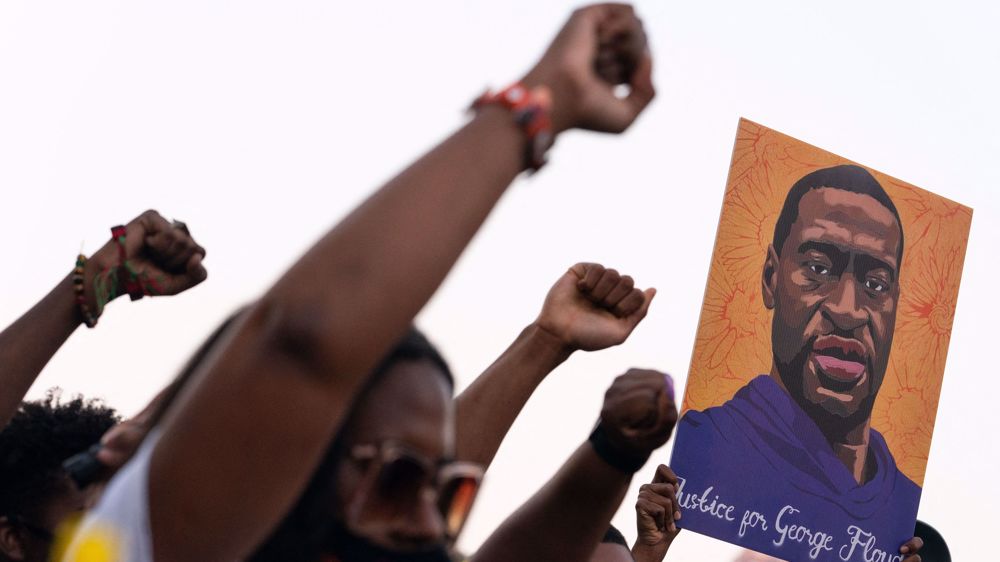
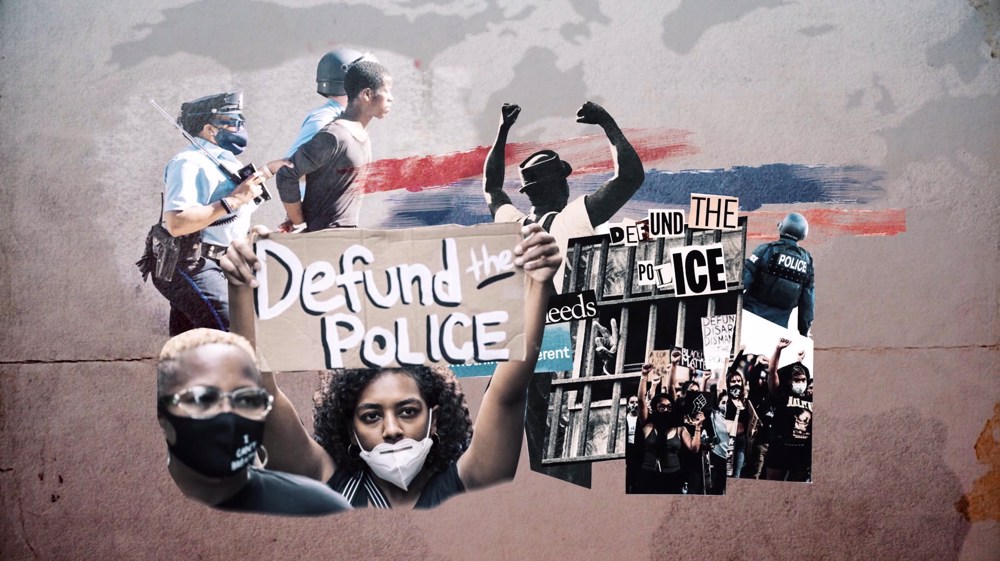
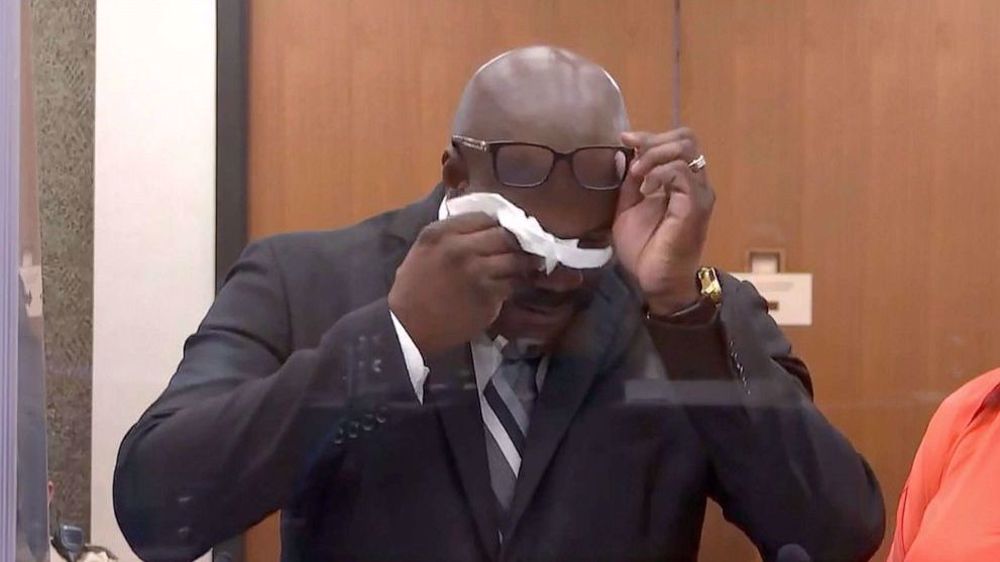
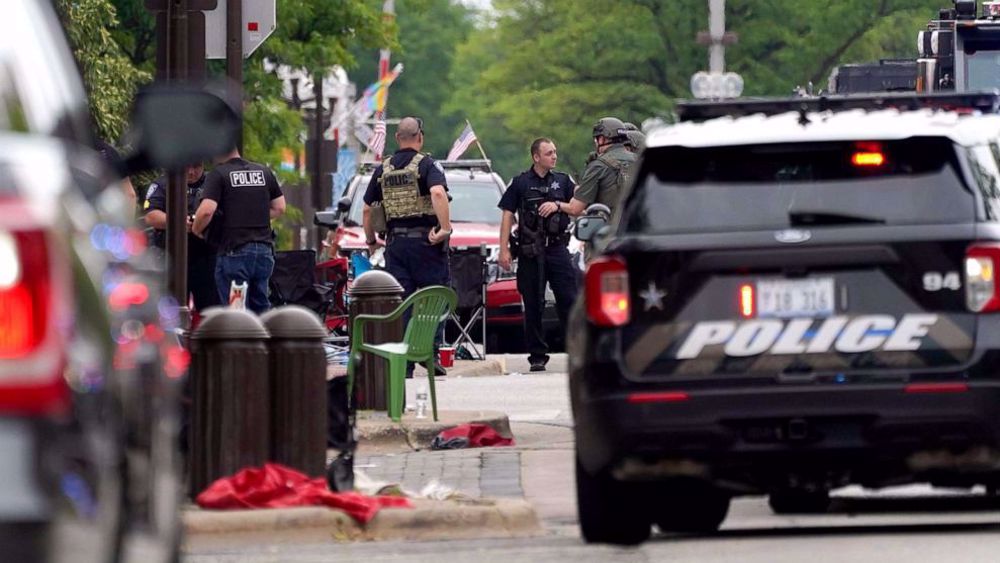
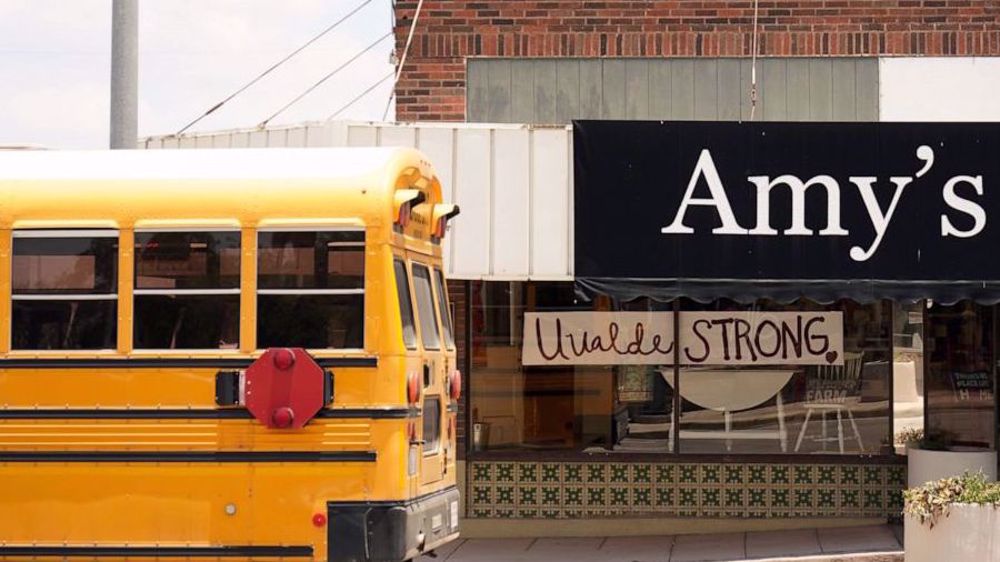
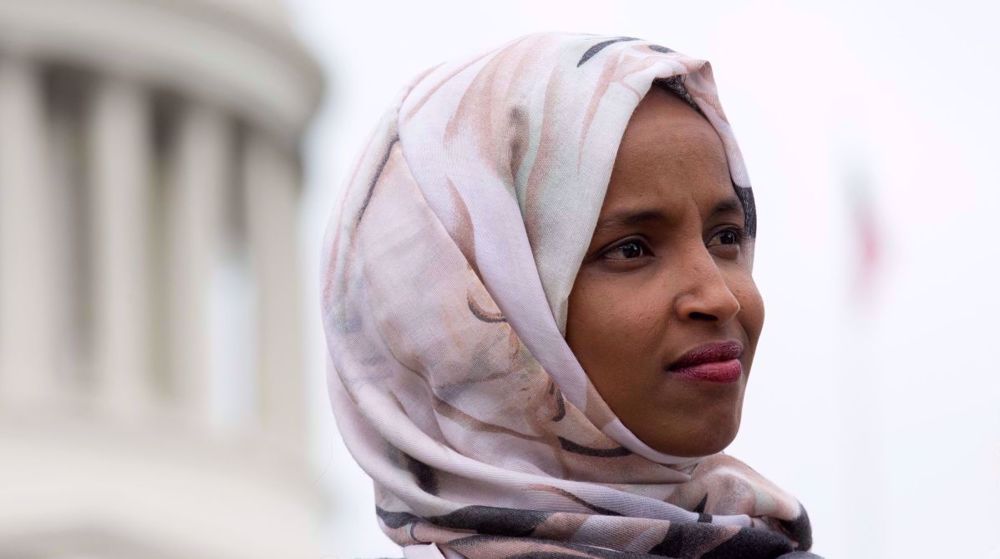
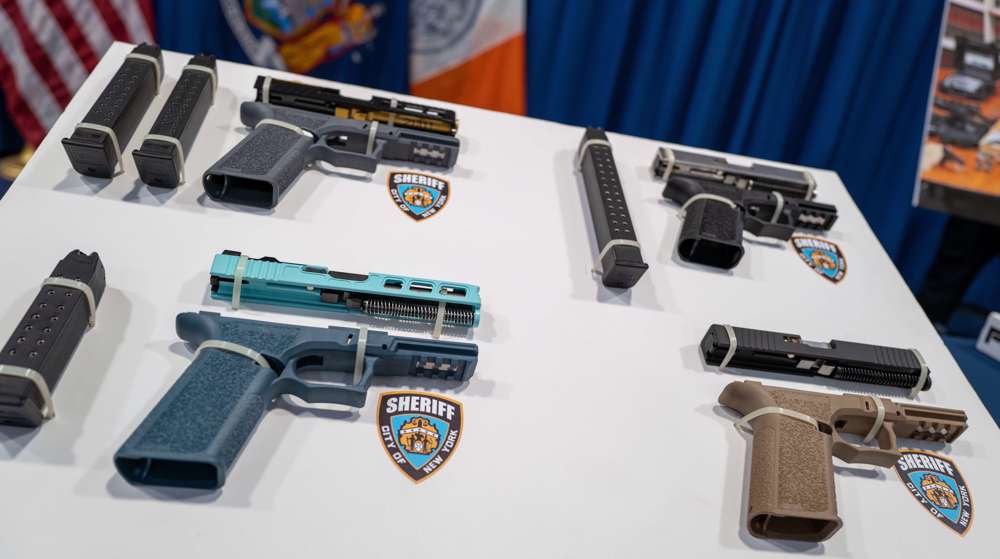
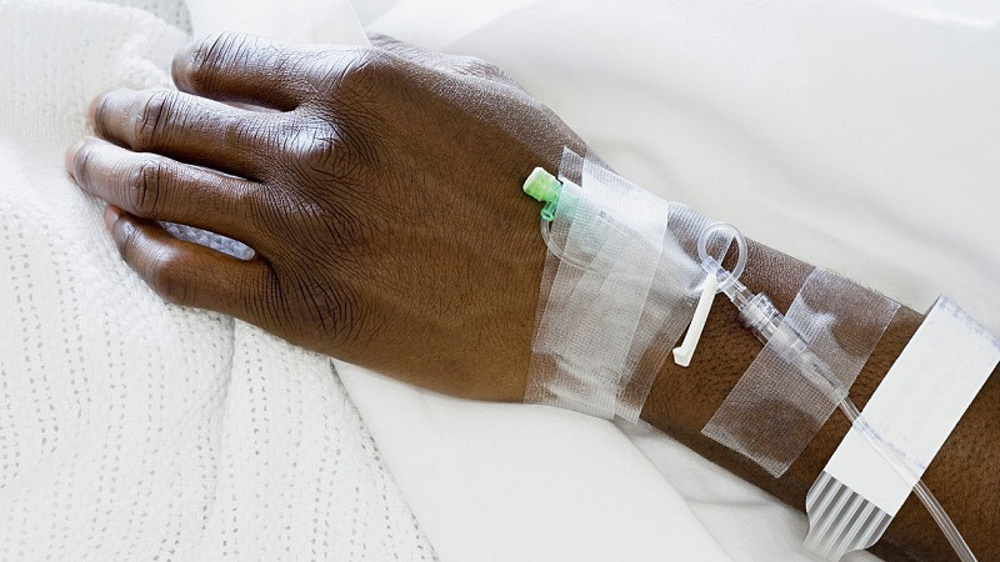
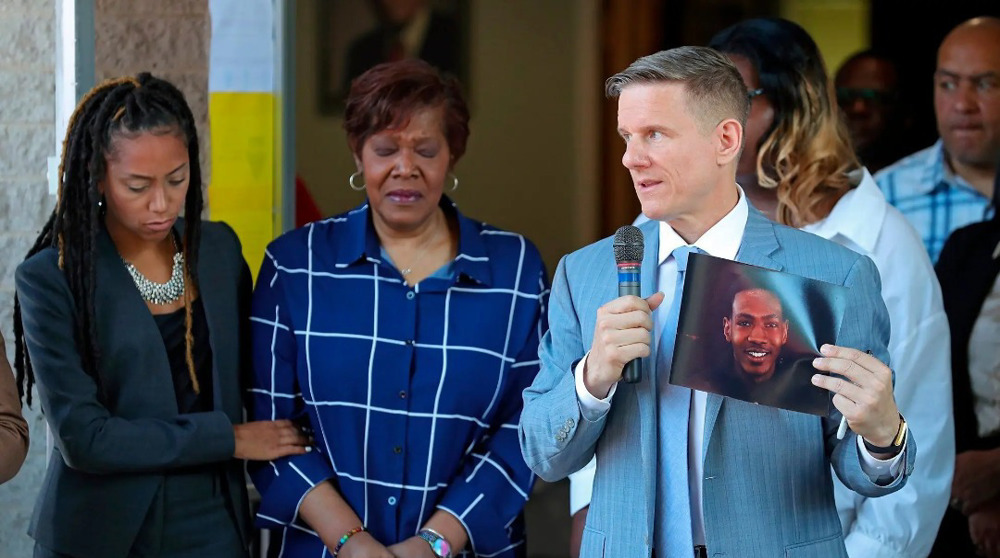
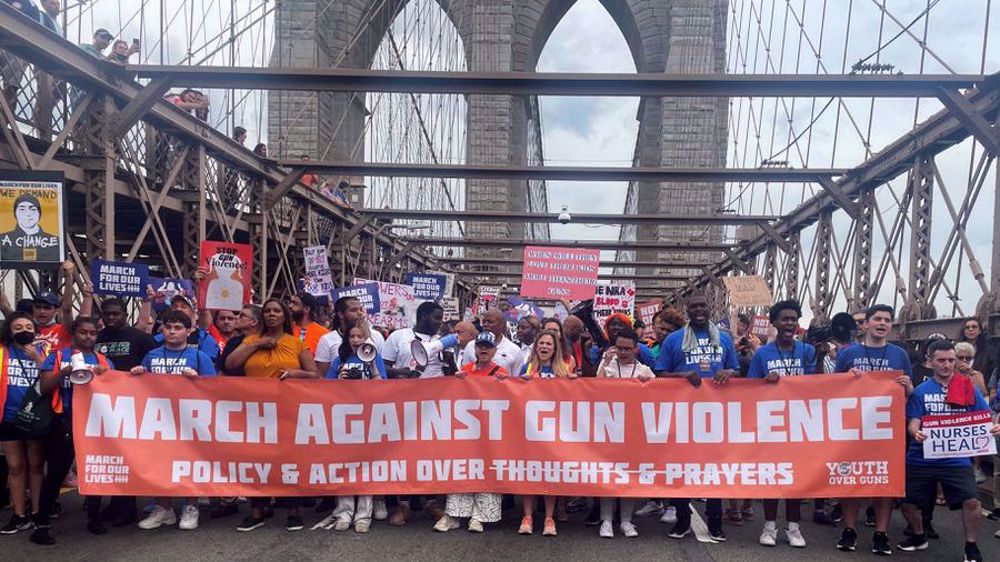
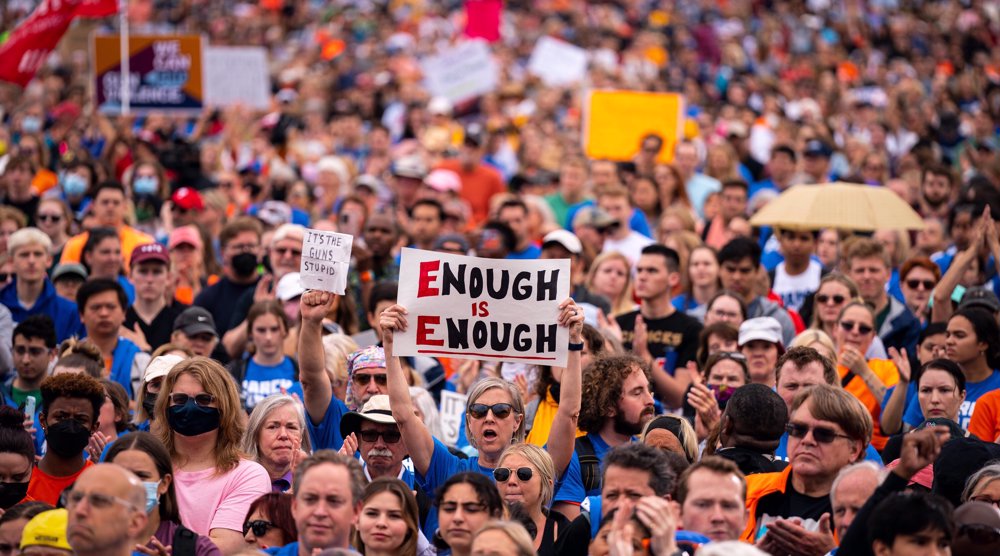
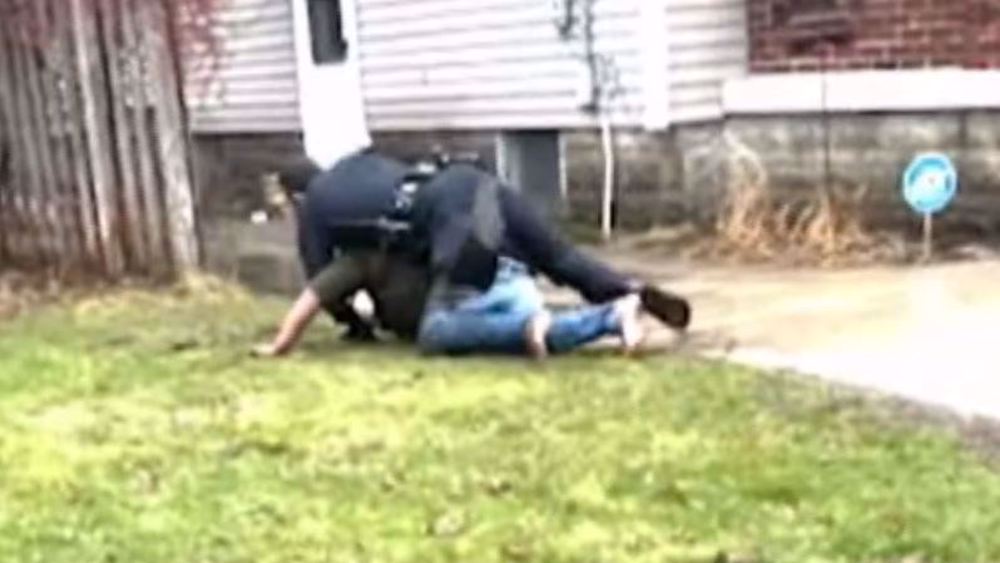
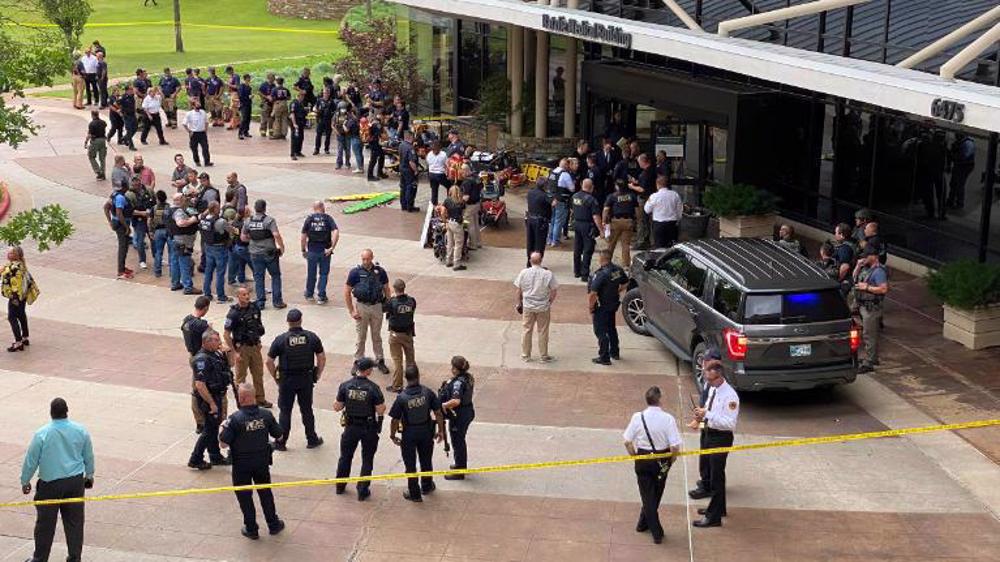
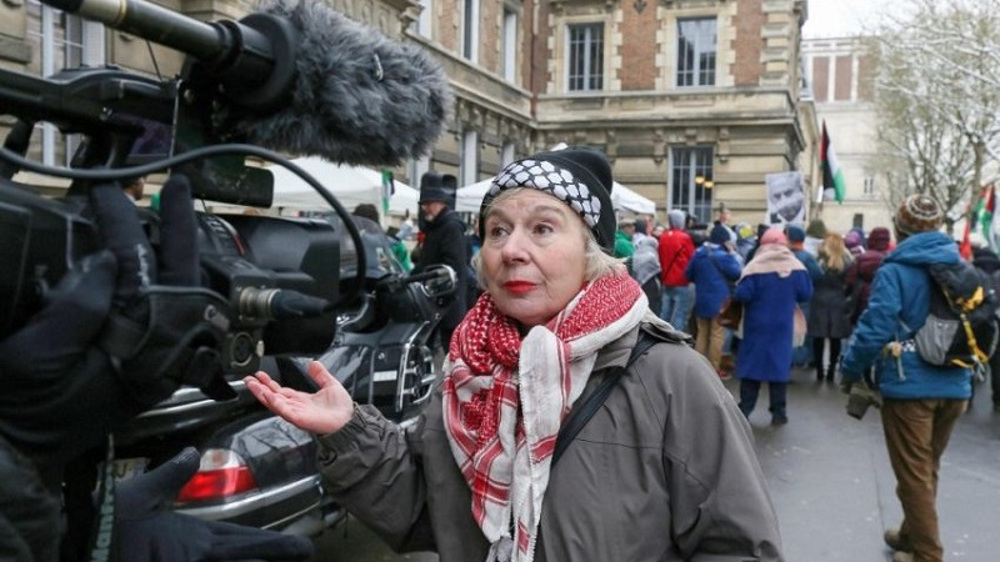
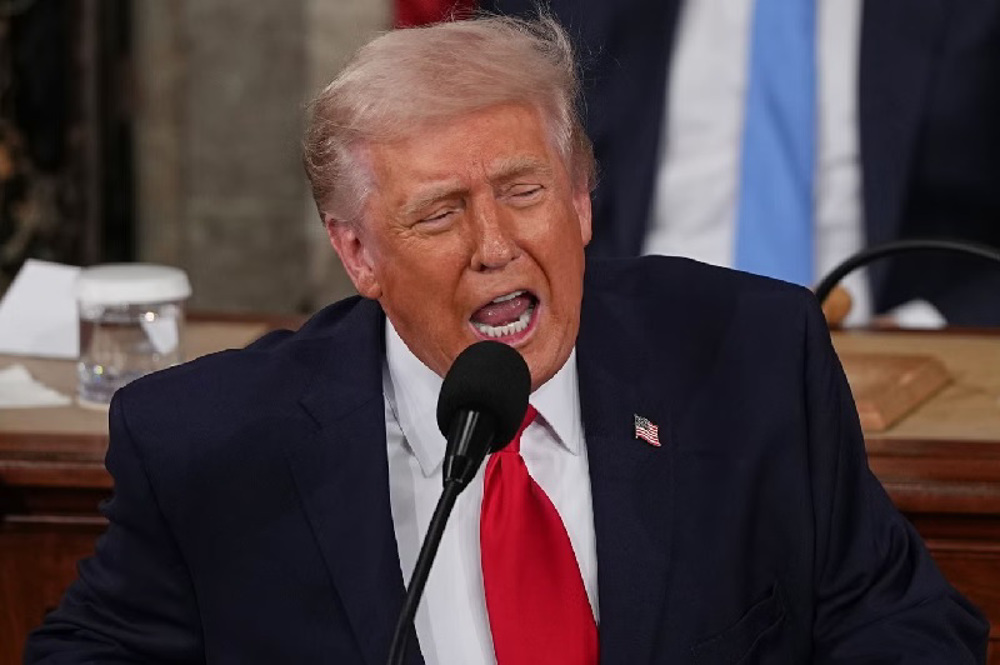
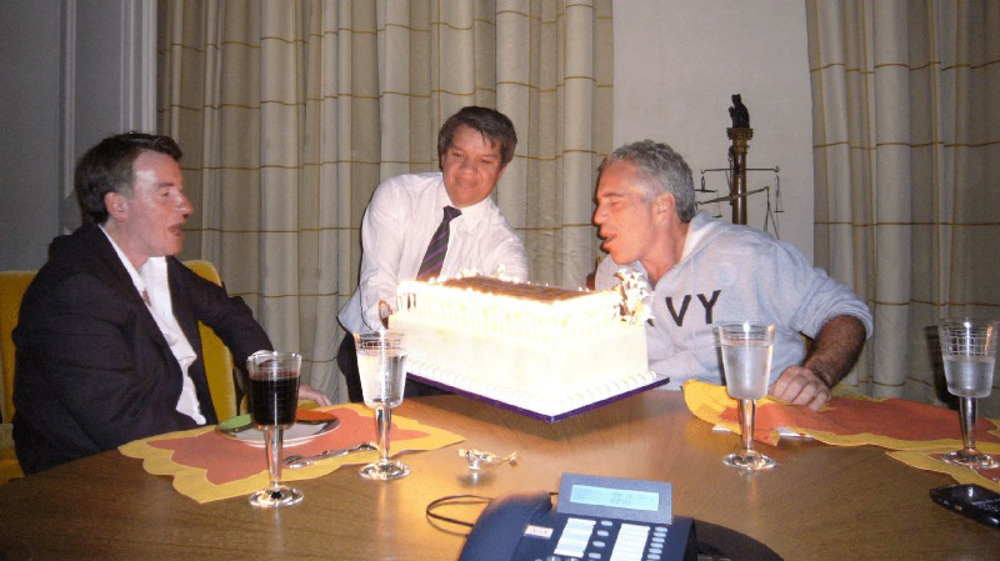



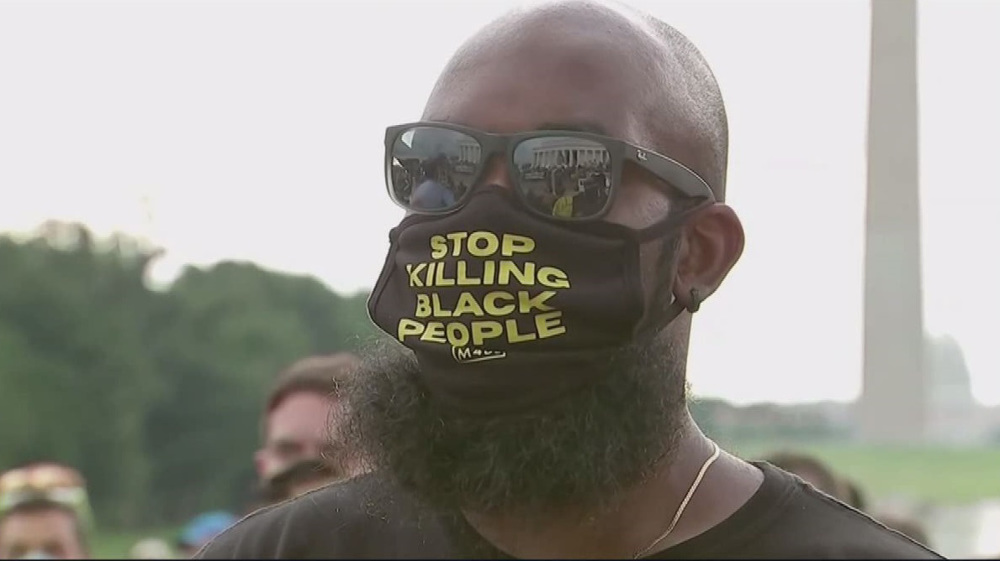
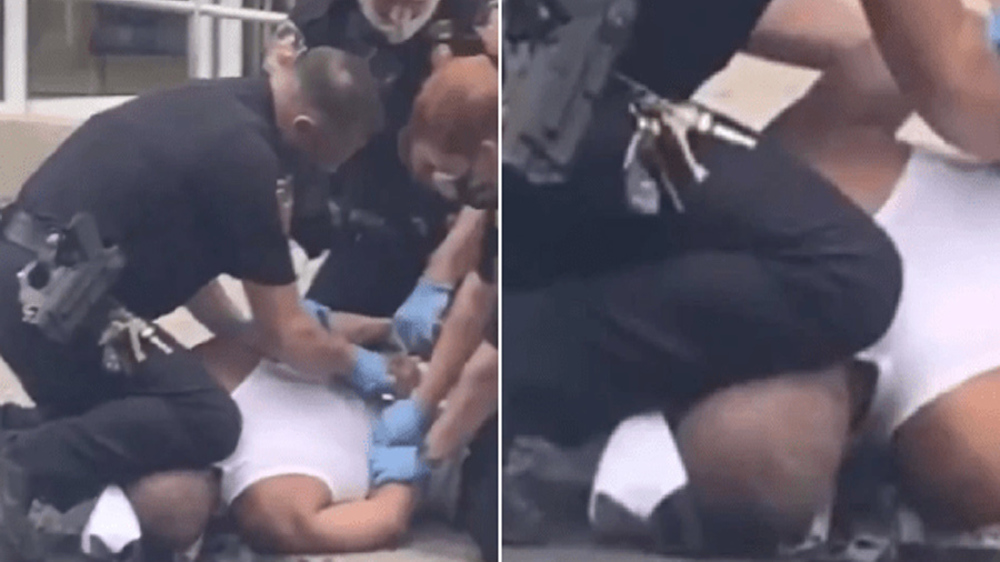
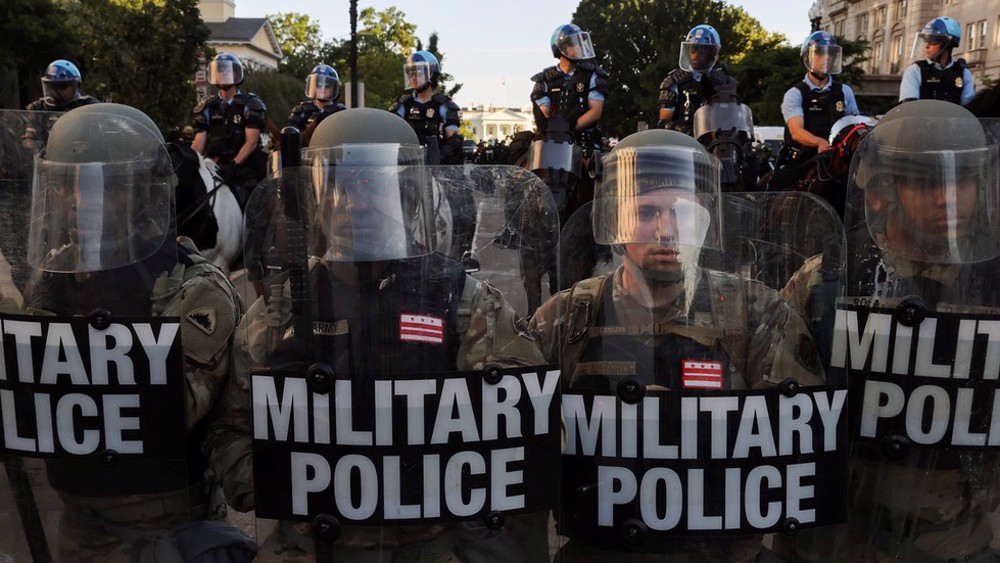
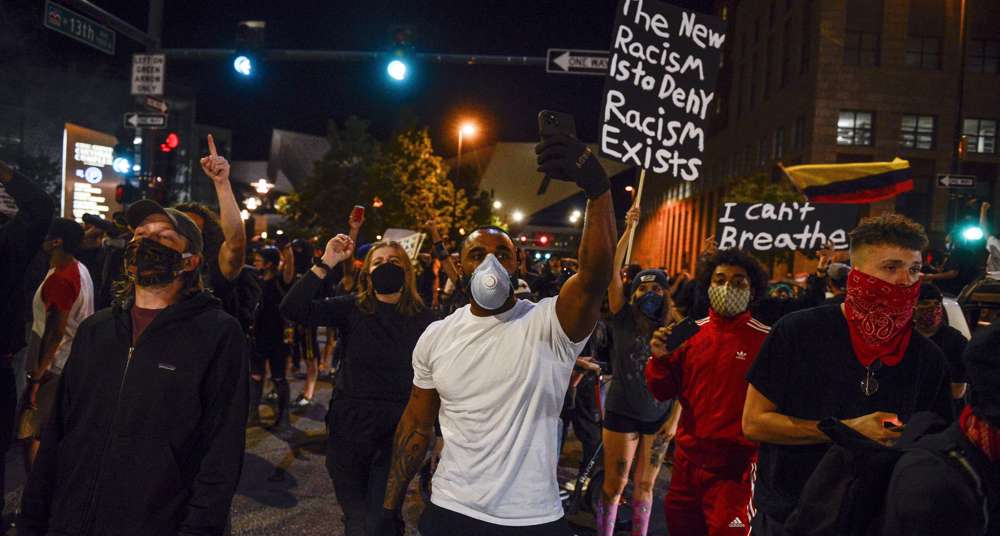

 This makes it easy to access the Press TV website
This makes it easy to access the Press TV website